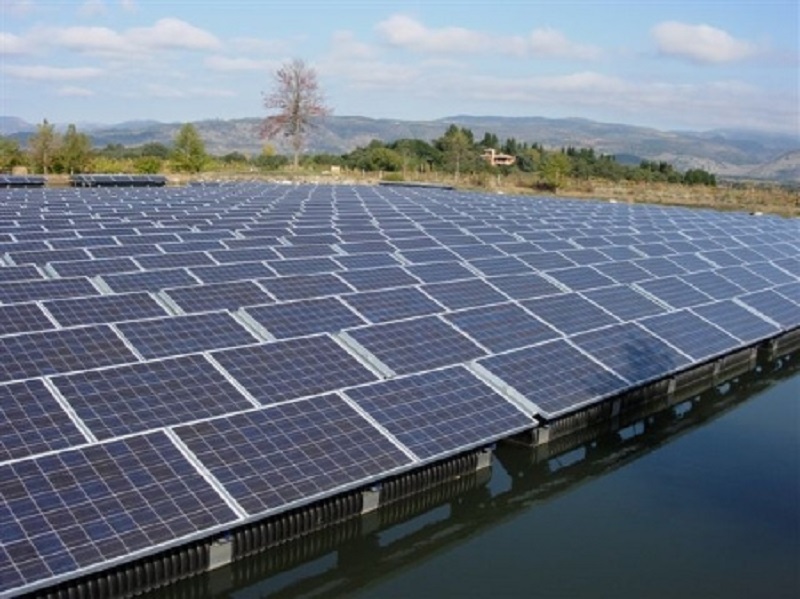One of the leading states in India’s renewable energy sector, Maharashtra is now considering installating floating solar panels on the Irai dam in the Chandrapur region of the state, reports The Energy World of Economic times. A 500 kW floating solar plant in Kerala was recently inaugurated, and further floating solar plants in India are cropping up.
State-run power generation company Mahagenco will conduct a feasibility study on solar panels on dams. Private solar agency Gensol will carry out the development and installation of these floating modules. The dam is owned by Mahagenco and thus, if the feasibility study results are positive, Mahagenco will proceed with the project.
By building floating solar farms developers do not need to acquire lands, while solar modules floating atop water reserves can reduce evaporation from body of water. According to a quoted source, 250 MW of power could be generated through these solar panels. The first floating panels will be installed on feeder reservoirs of thermal power plants, and if results are positive, then the model will be replicated on dams with permission from the Water Resource Department.
The project would be set up as a public-private partnership model with a competitive tariff bidding process. Mahagenco currently has 1,800 MW of grid-connected solar capacity in different areas of Maharashtra.
Maharashtra has established a goal of adding 7,500 MW of power generation through solar by 2020. This target is divided between Mahagenco and Maharashtra energy development agency (MEDA), at volumes of 2,500 MW and 5,000 MW respectively.
This content is protected by copyright and may not be reused. If you want to cooperate with us and would like to reuse some of our content, please contact: editors@pv-magazine.com.








1 comment
By submitting this form you agree to pv magazine using your data for the purposes of publishing your comment.
Your personal data will only be disclosed or otherwise transmitted to third parties for the purposes of spam filtering or if this is necessary for technical maintenance of the website. Any other transfer to third parties will not take place unless this is justified on the basis of applicable data protection regulations or if pv magazine is legally obliged to do so.
You may revoke this consent at any time with effect for the future, in which case your personal data will be deleted immediately. Otherwise, your data will be deleted if pv magazine has processed your request or the purpose of data storage is fulfilled.
Further information on data privacy can be found in our Data Protection Policy.